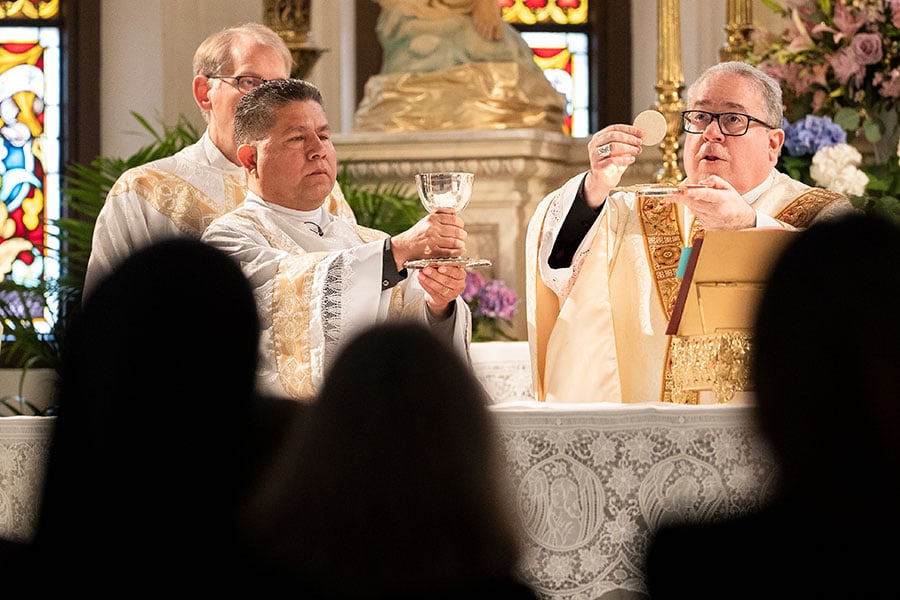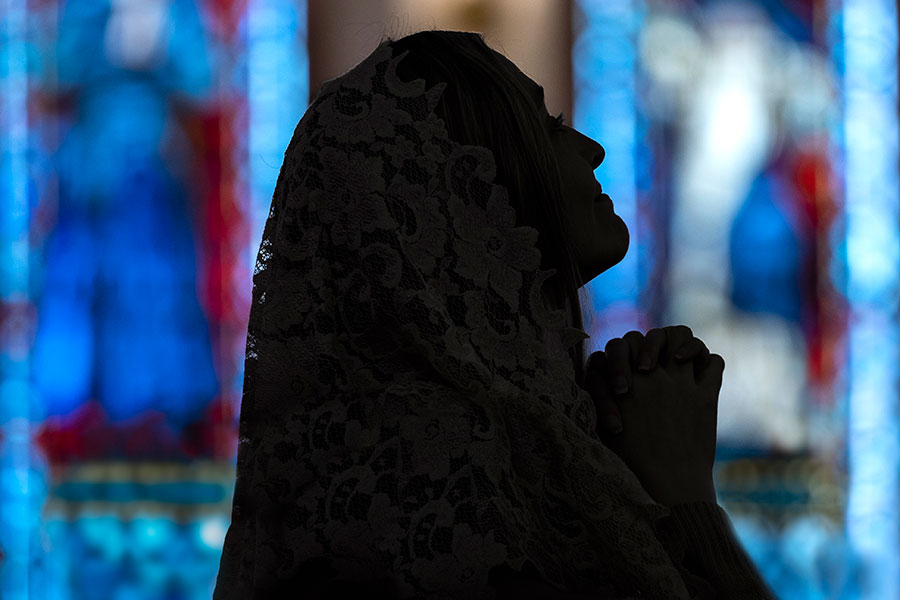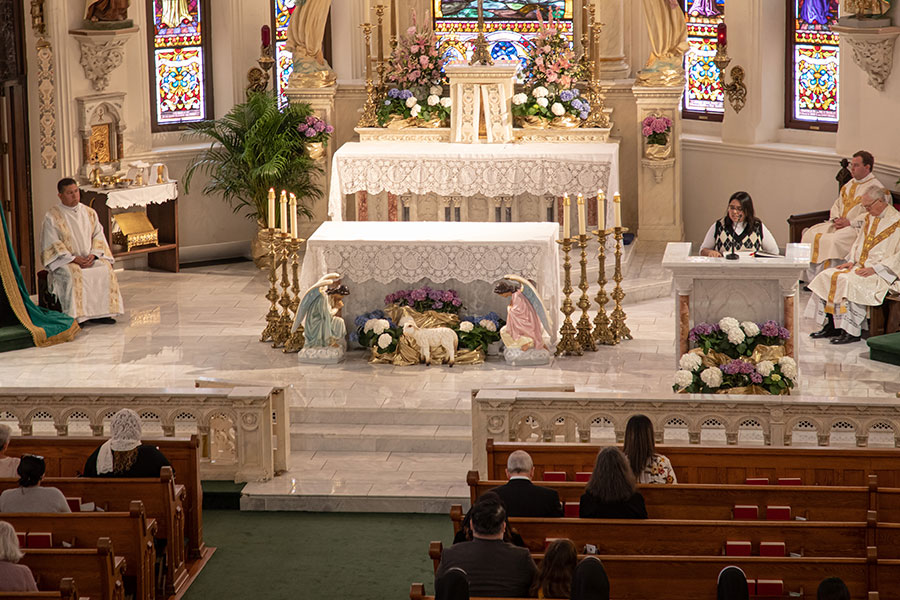Promise to Protect, Pledge to Heal: Annual Reparation Mass offered at St. Patrick Cathedral

Bishop Michael Olson celebrates the Mass for Reparation for Victims of Abuse on April 22, 2023 at St. Patrick Cathedral. (NTC/Juan Guajardo)
FORT WORTH — April is Child Abuse Prevention Month, an important time for the Office of Safe Environment, which offers healing assistance for victims and implements measures to prevent abuse. The motto of the program is “Promise to protect, pledge to heal.”
As a part of the diocese’s “pledge to heal,” on April 22 Bishop Michael Olson celebrated the Fort Worth Diocese’s annual Reparation Mass for Victims of Abuse. More than 70 laypersons were present at the Mass, including approximately 60 Safe Environment facilitators. Some folks also attended the Mass online. After Mass, the Safe Environment facilitators, who lead the diocese’s awareness sessions, stayed for a luncheon and meeting.
During his homily, Bishop Olson explained the relevance of the first reading from Acts 8: Philip’s encounter with the Ethiopian. “The man who was described to us as a eunuch in the first reading is himself a victim and survivor of abuse. He was physically mutilated as a child by the very bureaucracy that he served.”
The bishop emphasized that Christ is the only source of healing after such trauma. “It is Christ who saves and heals the man — not ritual, not the telling of a story, not the religious and philosophical ideas of ancient texts, not the unaided efforts of Philip,” said Bishop Olson. “It is Jesus Christ who identifies with this man and others like him.”
To conclude his homily, Bishop Olson read the passage from Isaiah quoted in Acts: “Like a sheep he was led to the slaughter, and as a lamb before its shearer is silent, so he opened not his mouth. In (his) humiliation justice was denied him….”
The readings and Gospel were proclaimed in English, and the psalm in Vietnamese. Several hymns were in Spanish. “I think it was reflective of our diocese to be able to incorporate Vietnamese and Spanish into the Mass,” said Sandra Schrader-Farry, Director of Safe Environment for the diocese.

Schrader-Farry spoke with the North Texas Catholic about another important aspect of the “pledge to heal”: Victim Assistance. “The victim assistance coordinator responds to any report of abuse and then assists immediately with pastoral care,” Schrader-Farry told the NTC. The diocesan Victim Assistance Hotline is always available to help victims of sexual abuse by clergy (or Church volunteers or staff) connect with resources, such as counseling, and to assist in making a report to law enforcement and/or Child Protective Services. In cases involving abuse by a priest, a meeting with the bishop is offered.
The “promise to protect” currently involves a larger body of people: anyone who serves in a parish. From gardeners to lectors and everything in between, all volunteers and employees of the diocese are trained to prevent abuse by identifying problematic behaviors and by keeping their own actions safe and appropriate at all times. The diocese uses the VIRTUS curriculum, which involves in-person training and frequent updates.
According to Schrader-Farry, 173 of these volunteers are Safe Environment facilitators—volunteers, all. While some of the facilitators may hold a paid position as Safe Environment Coordinator for a parish, facilitating Safe Environment training is a volunteer (rather than paid) position.
After the Mass of Reparation on April 22, Safe Environment facilitators and coordinators gathered for a luncheon and meeting. Tables were adorned with blue pinwheels, the national symbol of child abuse prevention efforts.
One attendee of the Mass and luncheon was Bruce Mallory. Serving as Safe Environment Coordinator at Saint Thomas the Apostle Parish for over a decade, Mallory has seen the program grow. When he first became involved, there was some pushback, but “we’re now in a culture that everyone understands it’s a joint responsibility to make sure not only the children but also vulnerable adults are taken care of,” he told the NTC.

Mallory explained that the diocese provides volunteers, employees, and children with training about healthy boundaries. “We’re all looking out for each other,” said Mallory.
Even Safe Environment Offices look out for each other. “Sandra and her team do a great job,” said Mallory. “It’s nice to have a guardian angel, if you will, watching over the parishes.”
The luncheon concluded with a meeting in which facilitators discussed successes and challenges of the Safe Environment program, and awards were given to facilitators.
Schrader-Farry told the NTC that the diocese plans to continue the tradition of an annual Mass of Reparation for Victims of Abuse. “Now it’s become something that people know and look forward to happening in April.”
Anyone with a concern related to Safe Environment can reach out to the diocesan Victim Assistance hotline at 817-602-5119 or contact the Office of Safe Environment at 817-945-9334. Schrader-Farry emphasized the important difference between reporting a concern and making an accusation: “They’re not accusing anyone of anything,” she said, “they’re just reporting what they’ve seen and what they’ve heard, the facts of that.”
